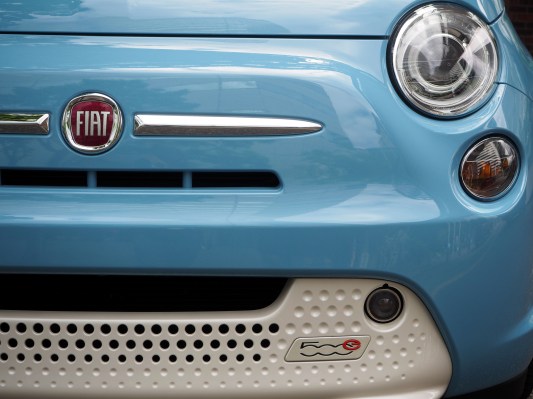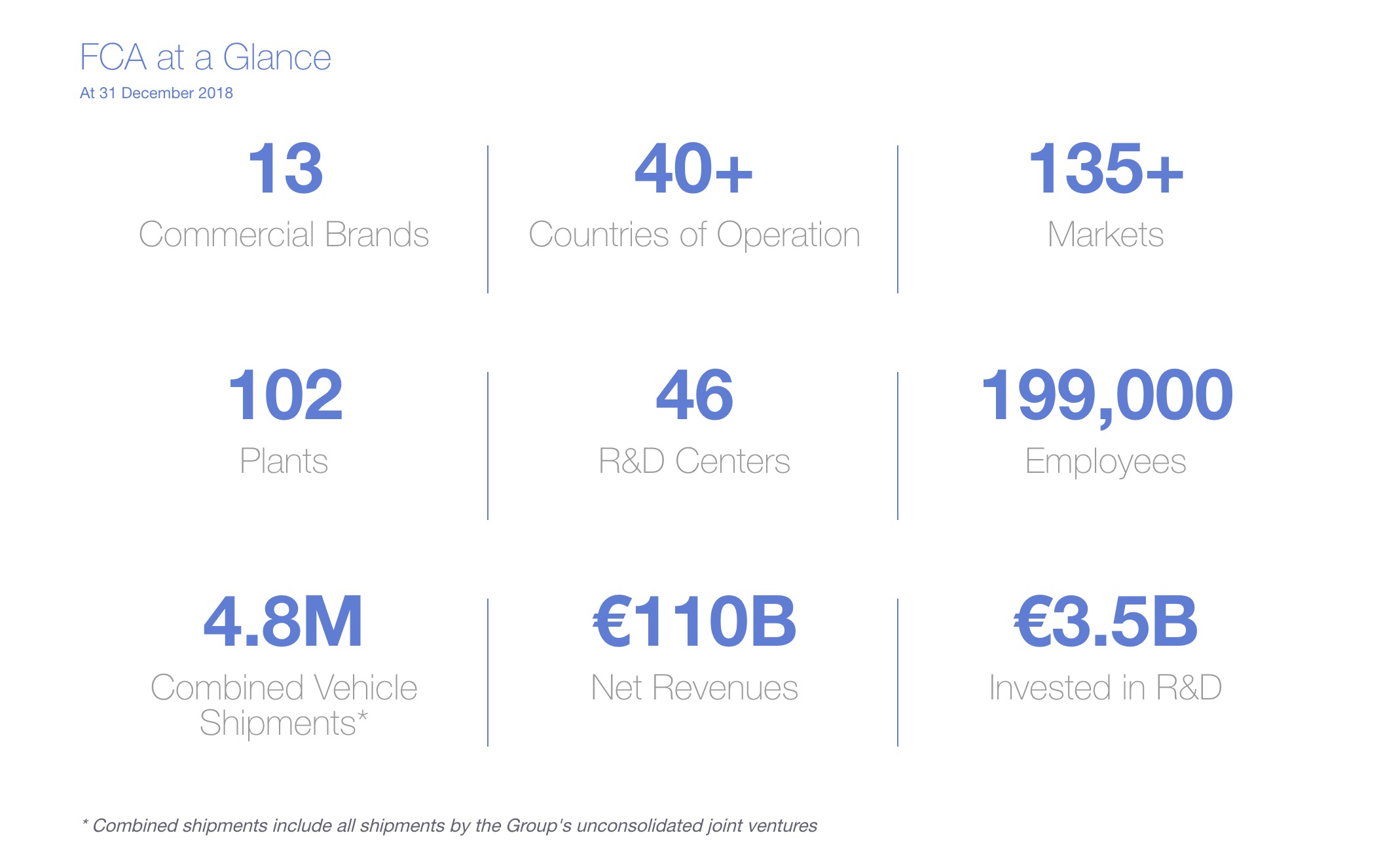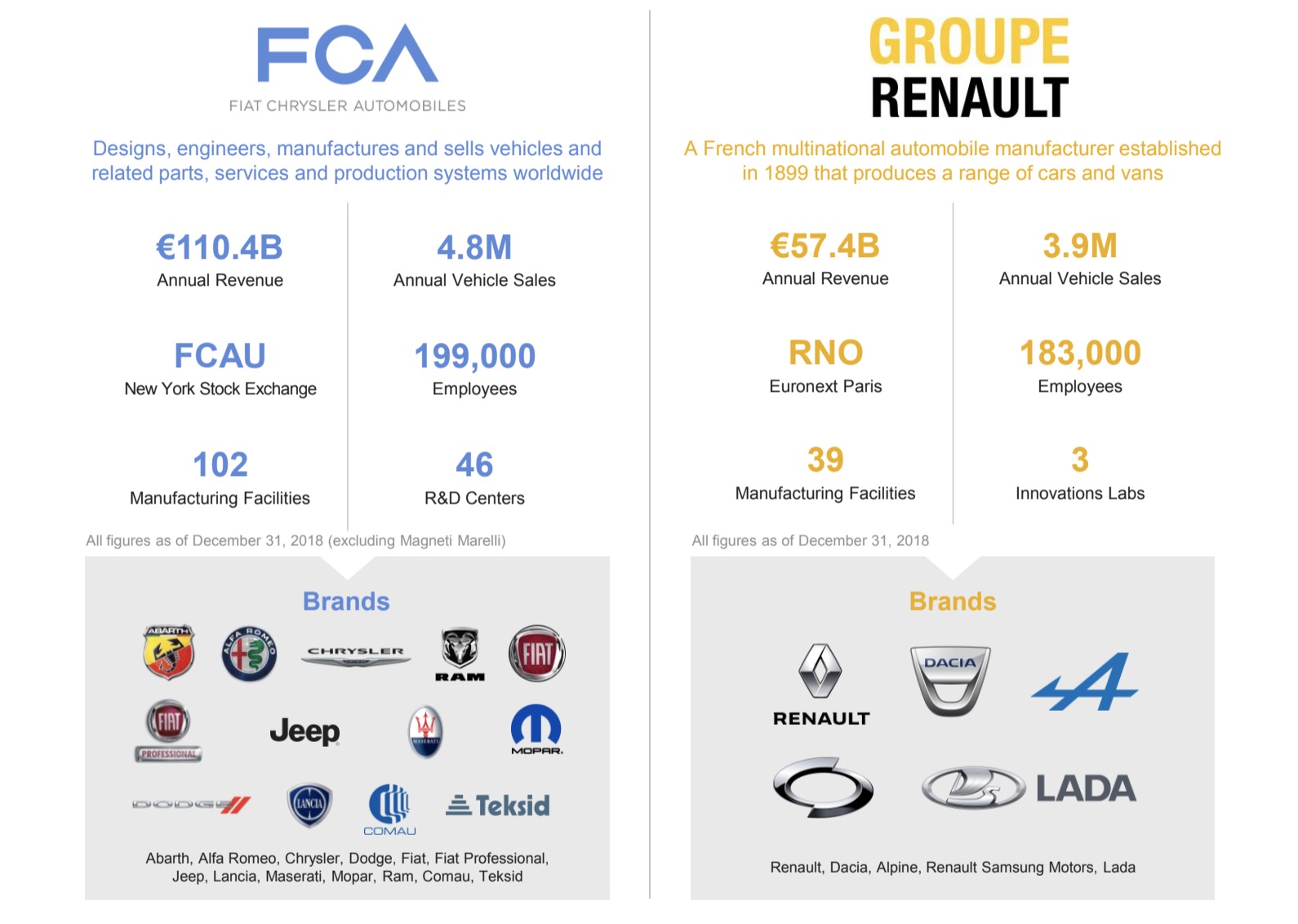Fiat Chrysler Automobiles and Renault are in talks that could result in merging vast swaths of their businesses, a move that illustrates the growing desire among automakers to consolidate in an environment of increased regulatory pressure, sales declines and rising costs aimed at bringing next-generation technologies like self-driving cars to market.
Update: Fiat Chrysler has sent a non-binding letter to Renault proposing a 50-50 merger. Under the proposal, the combined businesses would be split equally between FCA and Renault shareholders. The board would be a combined entity of 11 members, FCA said. The majority would be independent. FCA and Renault would get equal represent with four members each as well as one nominee from Nissan.
Fiat Chrysler is best known in U.S. for the company behind the Jeep and Ram trucks. Its business is far larger. Fiat, which has a market value of $20 billion, is also one of Italy’s oldest companies and owns brands like Alfa Romeo, Fiat, Lancia, and Maserati.
Fiat acquired a stake in Chrysler in 2009. The FCA people know today — which employs nearly 200,000 people — was created when the companies merged in 2014.
What’s the upshot for Fiat Chrysler? The automaker, which also owns automotive parts business Mopar, has an unbalanced business. Nearly one-third of its employees are in Europe. And yet, most of its profits are derived from the North America market. Such a tie-up could produce considerable cost savings in Europe.
FCA has stressed that the merger would not result in any plant closures.
Those cost savings will come in handy if there’s a downturn in sales — a reality that other automakers like GM and Ford are already preparing for. And it allows the company to potentially collaborate or share costs on the expensive endeavor of bringing new technologies to market such as electrification and autonomous vehicles.
FCA, which operates 46 research and development centers, has invested in advanced driver assistance systems like its highway assist feature offered in its Maserati brand. But it has also relied on partnerships such as the one with self-driving vehicle company Waymo.
Last year, the company announced an expanded partnership with Waymo that will add up to 62,000 more Chrysler Pacifica minivans to Waymo’s self-driving car fleet. The two companies are also working on ways to license Waymo’s self-driving car technology in order to deploy the tech in cars for consumers.
This article has been updated to reflect that Fiat Chrysler has submitted a proposal to merge with Renault.


